
Chester Gordon Bell was an American electrical engineer and manager. An early employee of Digital Equipment Corporation (DEC), from 1960–1966, Bell designed several of their PDP machines and later served as the company's Vice President of Engineering from 1972–1983, overseeing development of the VAX computer systems. Bell's later career included roles as an entrepreneur, investor, founding Assistant Director of NSF's Computing and Information Science and Engineering Directorate from 1986–1987, and researcher emeritus at Microsoft Research from 1995–2015.

Hanna Holborn Gray is an American historian of Renaissance and Reformation political thought and Professor of History Emerita at the University of Chicago. She served as president of the University of Chicago, from 1978 to 1993, having earlier served as president pro tempore of Yale University in 1977–1978. At both schools, she was the first woman to hold their highest executive office. When named to the post in Chicago, she became one of the first women in the United States to hold the full presidency of a major university.

John Leroy Hennessy is an American computer scientist who is chairman of Alphabet Inc. (Google). Hennessy is one of the founders of MIPS Technologies and Atheros, and also the tenth President of Stanford University. Hennessy announced that he would step down in the summer of 2016. He was succeeded as president by Marc Tessier-Lavigne. Marc Andreessen called him "the godfather of Silicon Valley."
Allan Bertram Borodin is a Canadian-American computer scientist who is a professor at the University of Toronto.
Jean E. Sammet was an American computer scientist who developed the FORMAC programming language in 1962. She was also one of the developers of the influential COBOL programming language.
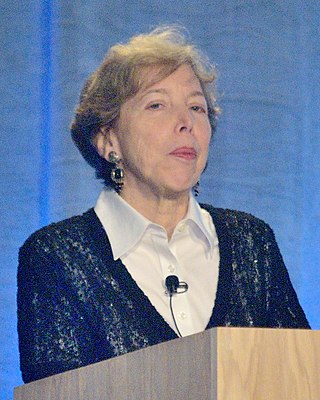
Susan Lois Graham is an American computer scientist. Graham is the Pehong Chen Distinguished Professor Emerita in the Computer Science Division of the Department of Electrical Engineering and Computer Sciences at the University of California, Berkeley.
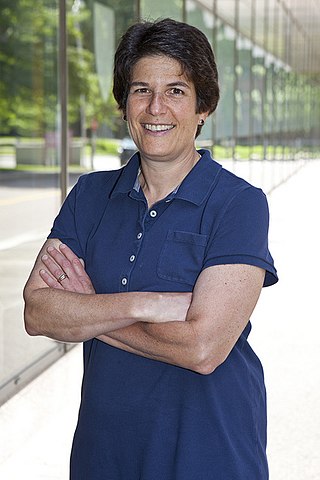
Margo Ilene Seltzer is an American computer scientist. She is currently the Canada 150 Research Chair in Computer Systems and the Cheriton Family Chair in Computer Science at the University of British Columbia. Previously, Seltzer was the Herchel Smith Professor of Computer Science at Harvard University's John A. Paulson School of Engineering and Applied Sciences and director at the Center for Research on Computation and Society.
David E. Keyes is a Senior Associate to the President of King Abdullah University of Science and Technology (KAUST) and the Director of the Extreme Computing Center at King Abdullah University of Science and Technology (KAUST). He was the inaugural Dean of the Division of Computer, Electrical, and Mathematical Sciences and Engineering (CEMSE) at KAUST and remains an adjunct professor in Applied Physics and Applied Mathematics at Columbia University and an affiliate of several laboratories of the U.S. Department of Energy. With backgrounds in engineering, applied mathematics, and computer science, he works at the algorithmic interface between parallel computing and the numerical analysis of partial differential equations, across a spectrum of aerodynamic, geophysical, and chemically reacting flows.

Manuela Maria Veloso is the Head of J.P. Morgan AI Research & Herbert A. Simon University Professor Emeritus in the School of Computer Science at Carnegie Mellon University, where she was previously Head of the Machine Learning Department. She served as president of Association for the Advancement of Artificial Intelligence (AAAI) until 2014, and the co-founder and a Past President of the RoboCup Federation. She is a fellow of AAAI, Institute of Electrical and Electronics Engineers (IEEE), American Association for the Advancement of Science (AAAS), and Association for Computing Machinery (ACM). She is an international expert in artificial intelligence and robotics.
Alice Mossie Brues was a physical anthropologist.

Carla Schlatter Ellis is an American computer scientist and Emeritus Professor of Computer Science at Duke University. She is known for her work in energy management on mobile devices as well as for her dedication to increasing the number of women in the field of computer science. She is one of the founding members of Systers, an international email list of female computer scientists that was founded in 1987. Systers, which was initiated by Ellis and 12 other female computer scientists who met at a Symposium on Operating Systems Principles (SOSP), has since grown to over 3000 members.
Jennifer Rexford is an American computer scientist who is currently the Provost, Gordon Y. S. Wu Professor in Engineering, Professor of Computer Science, and formerly the Chair of the Department of Computer Science at Princeton University. Her research focuses on analysis of computer networks, and in particular network routing, performance measurement, and network management.
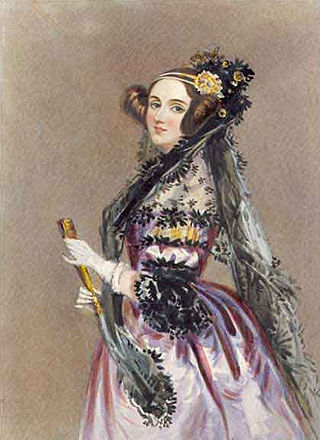
This is a timeline of women in computing. It covers the time when women worked as "human computers" and then as programmers of physical computers. Eventually, women programmers went on to write software, develop Internet technologies and other types of programming. Women have also been involved in computer science, various related types of engineering and computer hardware.
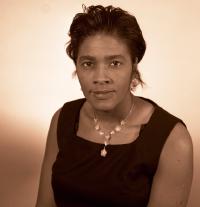
Jacquelyne Mary Johnson Jackson was an American sociologist, educator, and researcher on issues that affect elderly minority populations. She was involved in public policy debates on programs for this group for over 30 years. From 1978, she started a dialogue on social security accessibility for elderly minorities in consideration of sociological influence.
Jane Menken, née Golubitsky, is an American sociologist and demographer known for her work in sociology in public and international affairs, population studies, social statistics.

Adele Smith Simmons is an American academic, business director, philanthropist, academic administrator, the third president of Hampshire College in Amherst, Massachusetts, from 1977 to 1989 and the second president of the John D. and Catherine T. MacArthur Foundation from 1989 to 1999. Simmons also served as the dean of student affairs at Princeton University, from 1972 to 1977, where she was the first female dean.
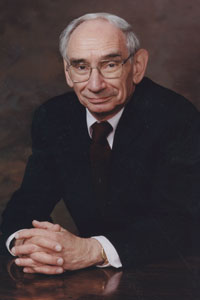
Anthony "Tony" Gervin Oettinger was a German-born American linguist and computer scientist best known for his work on information resources policy. Oettinger coined the term “compunications” in the late 1970s to describe the combination of computer and telecommunications technologies that would take place as digital technologies replaced analog forms. In 1973 he co-founded, with John LeGates, the Program on Information Resources Policy at Harvard University. He served as a consultant to the President’s Foreign Intelligence Advisory Board and the National Security Council and NASA’s Apollo moon-landing program. From 1966 to 1968 he was president of the Association for Computing Machinery (ACM). He was recognized for his work in the intelligence community with the naming of the Anthony G. Oettinger School of Science and Technology Intelligence of the National Intelligence University. He was Gordon McKay Professor of Applied Mathematics and Professor of Information Resources Policy at Harvard.
Cristina Conati is an Italian and Canadian computer scientist specializing in artificial intelligence and computer-human interaction. She is a professor of computer science at the University of British Columbia, and has served as president of the Association for the Advancement of Affective Computing.










